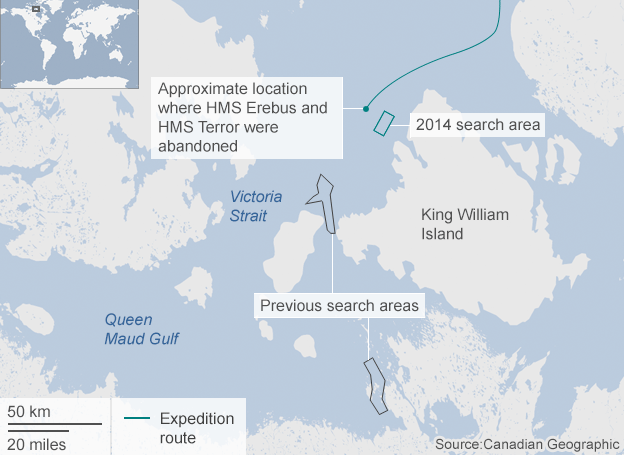In Canadian Geographic, an interesting find in the Canadian Arctic:
Prime Minister Stephen Harper announced today the discovery of one of the shipwrecks of Sir John Franklin’s ill-fated 1845-48 British Arctic Expedition. At this time it is not clear which of the two ships, HMS Terror or Erebus, has been found because of similarities of the two vessels; however, the ship’s authenticity has been confirmed.
The discovery of the wreck was confirmed on Sunday, Sept. 7, using a remotely operated underwater vehicle recently acquired by Parks Canada. Details of where exactly the ship was found have not yet been released.
“I’m delighted to announce that this year’s Victoria Strait Expedition has solved one of Canada’s greatest mysteries,” said Harper in a release.
“I would like to congratulate and pay tribute to all partners involved in this year’s momentous Victoria Strait Expedition, including Parks Canada, The Royal Canadian Geographical Society, the Arctic Research Foundation, the Canadian Coast Guard, the Royal Canadian Navy and the Government of Nunavut.”
And everyone’s a comedian:
Well no wonder it sank. Full of holes. @HannahThibedeau: This is a photo of Franklin ship #cdnpoli #hw pic.twitter.com/eYYR73aOSo
— David Mader (@DavidMader) September 9, 2014
What legendary ancient exploration gear has Justin Trudeau found? I rest my case.
— Paul Wells (@InklessPW) September 9, 2014
BBC News linked this map, showing the approximate locations for the two ships when abandoned, plus the search areas:




